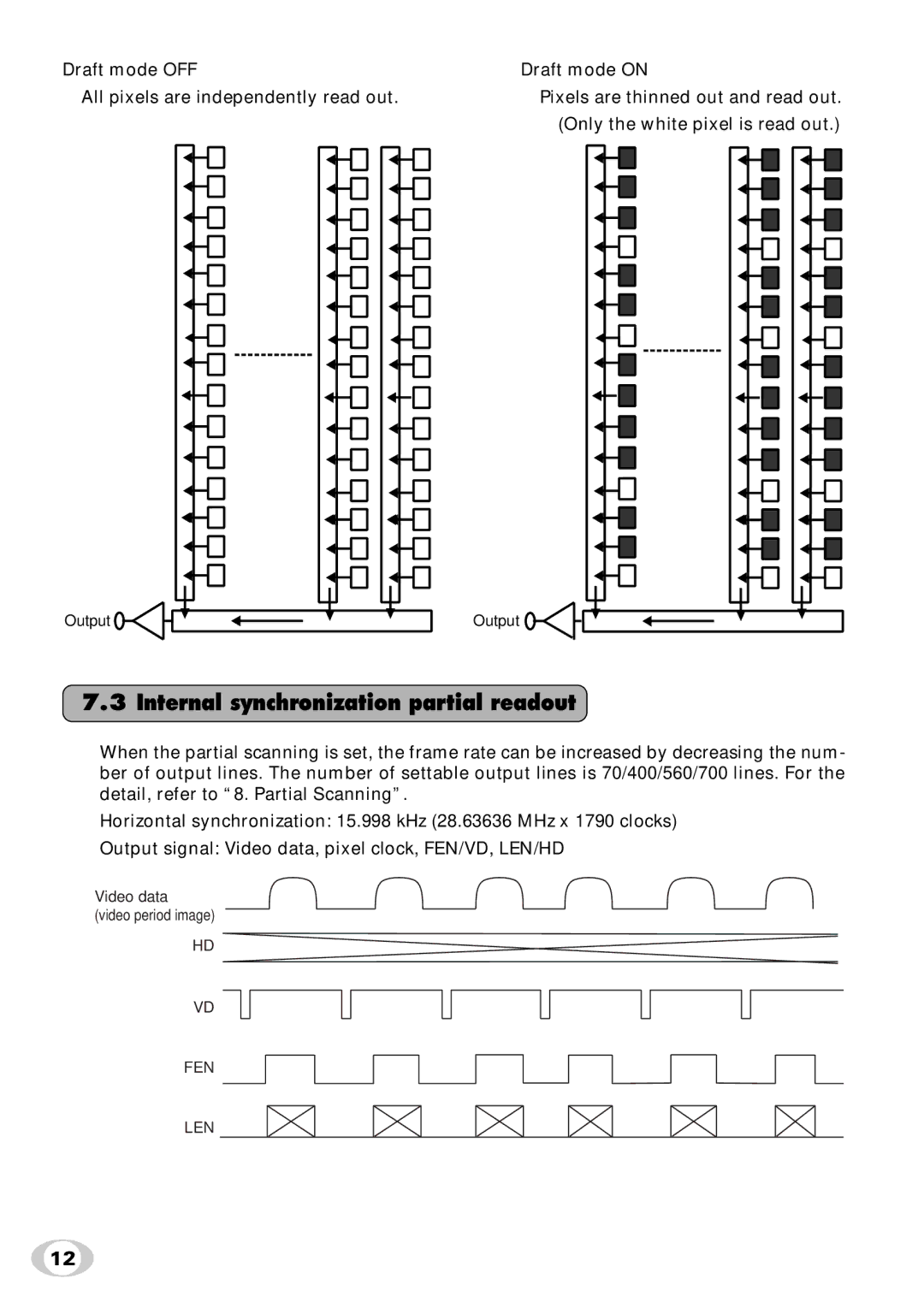IK-SX1L, IK-SX1 specifications
The Toshiba IK-SX1 and IK-SX1L are innovative industrial cameras designed to meet the demanding requirements of various applications, including manufacturing quality control, robotics, and inspection processes. Both models feature advanced imaging technologies that enable high-resolution visuals, facilitating precise analysis and decision-making.One of the standout features of the IK-SX1 and IK-SX1L is their exceptional image quality. Equipped with a high-sensitivity CMOS sensor, these cameras provide stunningly detailed images with a resolution of 1920 x 1080 pixels. This capability ensures that even the smallest details are captured accurately, which is essential for applications that require meticulous inspection. The wide dynamic range of these cameras further enhances their utility in varying lighting conditions, allowing for optimal performance even in challenging environments.
The IK-SX1 series also incorporates state-of-the-art image processing technologies. These cameras utilize advanced algorithms to improve image clarity and reduce noise, resulting in crystal-clear visuals that enhance the overall quality of the captured images. The integration of real-time image processing enables immediate feedback and analysis, which can significantly streamline production workflows.
Versatility is another key characteristic of the IK-SX1 and IK-SX1L. The cameras support multiple video output options, including HDMI and USB 3.0, making it easy to integrate them into existing systems or connect them to various devices. Additionally, the IK-SX1L version offers enhanced low-light performance, making it suitable for applications in dimly lit environments.
The robust build quality of the IK-SX1 and IK-SX1L ensures their reliability in industrial settings. Both models are designed to withstand the rigors of continuous operation and are resistant to dust and moisture, making them ideal for use in manufacturing facilities.
In summary, the Toshiba IK-SX1 and IK-SX1L are high-performance industrial cameras that leverage cutting-edge imaging technologies to deliver superior clarity and versatility. Their advanced features, combined with their durable design, make them an excellent choice for a variety of inspection and imaging tasks in demanding environments. These cameras not only meet the current industrial demands but also set a standard for future imaging solutions.

